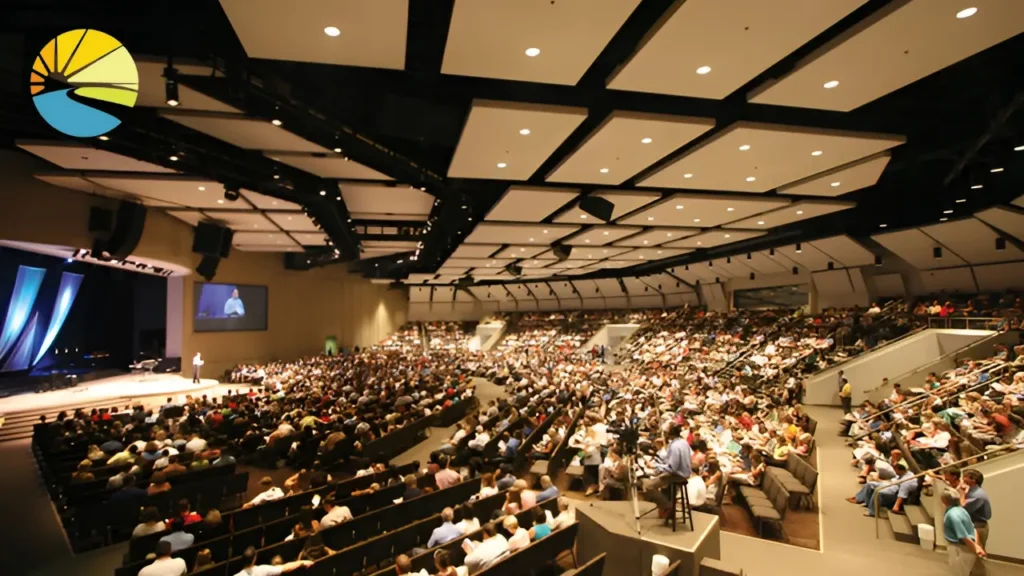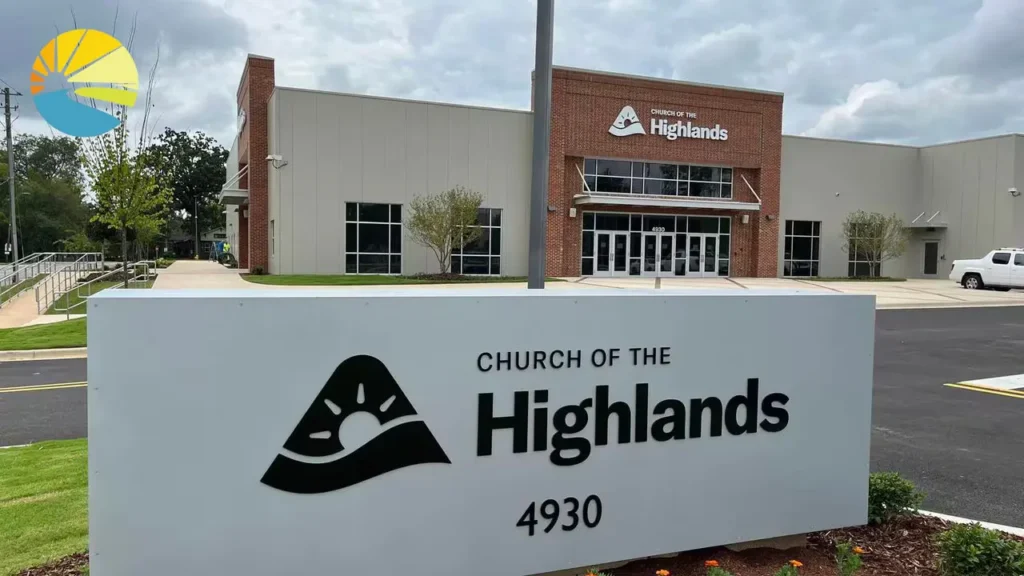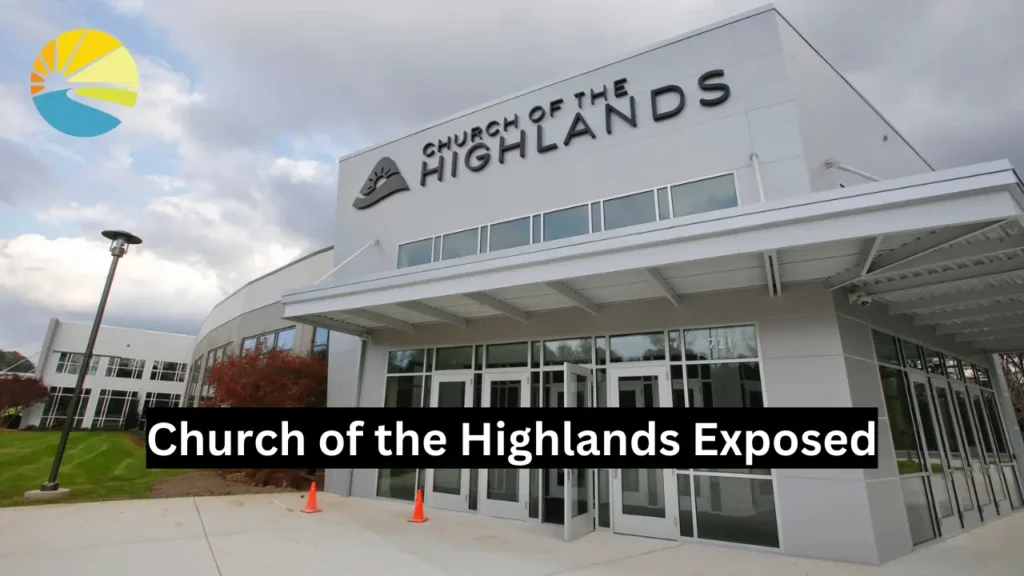The Church of the Highlands, one of the largest and most influential megachurches in the United States, has captivated many with its modern approach to worship and extensive community outreach. However, beneath its polished image, there have been growing concerns and controversies that have left some questioning the church’s practices and leadership. This has led to a rising interest in the Church of the Highlands exposed narrative, where critics and former members are bringing to light issues that challenge the church’s reputation.
From questions about financial transparency to accusations of problematic leadership decisions, the Church of the Highlands exposed narrative is not just a series of isolated incidents but a reflection of deeper concerns within the church community. These controversies have sparked intense debate, not only among members but also in the broader public sphere, leading many to wonder what lies behind the church’s impressive growth and influence.
As we delve into the controversies surrounding the Church of the Highlands, it’s important to understand both the church’s significant impact and the criticisms it faces. This exploration aims to provide a balanced view, offering insights into why this megachurch has become a focal point of both admiration and controversy. Through this lens, we can better understand the complexities of the Church of the Highlands exposed narrative and its implications for the church’s future.
The Rise of the Church of the Highlands
Founding and Growth
The Church of the Highlands was founded by Pastor Chris Hodges in 2001 with a mission to create a church that would connect people with God in a relevant and dynamic way. Starting with a small congregation, the church quickly grew, establishing multiple campuses across Alabama and beyond. Today, it stands as one of the largest churches in the United States, known for its vibrant worship services, extensive community outreach programs, and emphasis on small group connections.
Vision and Mission
The church’s vision has always been centered on reaching people who are far from God, helping them to grow in their faith, and equipping them to make a difference in the world. This vision has been a driving force behind the church’s rapid growth, as it appeals to a broad demographic looking for a modern and engaging church experience.
Community Impact
The Church of the Highlands has been praised for its community involvement, offering various programs such as addiction recovery through its “Celebrate Recovery” program, educational support, and disaster relief efforts. The church’s influence extends internationally through its missions and outreach programs, further solidifying its role as a major player in both local and global religious communities.
Controversies and Criticisms: What Has Been Exposed?

Leadership and Accountability Issues
One of the major criticisms leveled against the Church of the Highlands revolves around its leadership, particularly the actions and decisions of Pastor Chris Hodges. Allegations have surfaced regarding a lack of transparency in the church’s leadership structure, leading to concerns over accountability. Former members and critics argue that the church’s leadership is overly centralized, with key decisions being made by a small group of individuals without sufficient input or oversight from the broader congregation.
Financial Transparency and Stewardship
Financial transparency is another area where the Church of the Highlands has faced criticism. As a megachurch with significant financial resources, there have been questions about how the church manages and allocates its funds. Critics have pointed to the church’s lack of detailed financial disclosures as a red flag, arguing that more transparency is needed to ensure that the church’s resources are being used effectively and ethically. The Church of the Highlands exposed narrative often highlights these financial concerns, questioning whether the church is living up to its responsibility to its congregation and the community.
Social and Racial Issues
The church has also been embroiled in controversies related to social and racial issues. In particular, Pastor Chris Hodges faced backlash for his social media activity, which some perceived as racially insensitive. This incident led to widespread criticism and prompted the Birmingham Board of Education to sever ties with the church, which had been using school facilities for some of its services. The church’s handling of these issues has been a focal point for critics who argue that the leadership has failed to adequately address concerns related to race and social justice.
The Church’s Response to Criticism
Addressing the Allegations
In response to the various allegations, the Church of the Highlands has taken steps to address the concerns raised by critics. Pastor Chris Hodges issued public apologies for the social media activity that sparked controversy, and the church has made efforts to improve its communication and transparency. However, the effectiveness of these responses has been a subject of debate, with some viewing them as sincere efforts to make amends, while others see them as insufficient or performative.
Changes in Leadership and Structure
The church has also made some changes to its leadership structure in an attempt to address concerns about accountability. These changes include the establishment of advisory boards and committees designed to provide more oversight and input into the church’s decision-making processes. Despite these efforts, some critics remain skeptical about whether these changes will lead to meaningful improvements in the church’s governance.
Ongoing Community Involvement
Despite the controversies, the Church of the Highlands continues to be active in its community outreach efforts. The church’s programs, such as those focused on addiction recovery and disaster relief, remain integral parts of its mission. The church’s leadership has emphasized its commitment to serving the community and maintaining its focus on positive social impact, even as it navigates the challenges posed by the ongoing criticisms.
Public Perception and Media Coverage

Media Reactions
The media’s coverage of the Church of the Highlands has been mixed, reflecting the complex nature of the church’s situation. While some media outlets have focused on the church’s positive contributions to the community, others have highlighted the controversies and criticisms, particularly in relation to leadership and financial transparency. The Church of the Highlands exposed narrative has gained traction in various media reports, contributing to a more critical public perception of the church.
Social Media and Public Opinion
Social media has played a significant role in shaping public opinion about the Church of the Highlands. The controversies involving Pastor Chris Hodges, in particular, have been widely discussed and debated on platforms like Twitter and Facebook. These discussions have often polarized public opinion, with some defending the church and its leadership, while others express disappointment and disillusionment.
Impact on Membership and Attendance
The impact of these controversies on the church’s membership and attendance is another area of concern. While the church continues to attract large numbers of attendees, there have been reports of some members leaving the church due to the controversies. The long-term effects of these issues on the church’s growth and influence remain to be seen, as the Church of the Highlands exposed story continues to unfold.
The Future of the Church of the Highlands
Rebuilding Trust
For the Church of the Highlands, the key to moving forward will be rebuilding trust with its congregation and the broader community. This will likely require continued efforts to improve transparency, accountability, and responsiveness to the concerns of its members. The church’s leadership will need to demonstrate a genuine commitment to addressing the issues that have been raised and making the necessary changes to prevent future controversies.
Evolving Leadership
As the church navigates these challenges, the role of its leadership will be critical. The ongoing scrutiny of Pastor Chris Hodges and other leaders suggests that there may be a need for further changes in how the church is governed. Whether this involves more significant restructuring or simply a renewed focus on ethical leadership, the church’s ability to adapt will be crucial to its future success.
Continued Community Engagement
Despite the controversies, the Church of the Highlands remains a significant force in its community. Its various outreach programs and initiatives continue to provide support and resources to those in need. The church’s ability to maintain and expand these efforts, even in the face of criticism, will be an important factor in its ongoing relevance and impact.
Final Words
The Church of the Highlands exposed narrative highlights the challenges that come with rapid growth and significant influence. As one of the largest megachurches in the United States, the Church of the Highlands has made a considerable impact on its community through various outreach programs and initiatives. However, the controversies surrounding its leadership, financial practices, and social issues have raised serious concerns and led to increased scrutiny.
For the church to move forward and maintain its influence, it must address these criticisms head-on. This will involve continued efforts to improve transparency and accountability, as well as a renewed focus on ethical leadership and community engagement. The future of the Church of the Highlands will depend on its ability to rebuild trust with its congregation and the broader public, ensuring that it can continue to fulfill its mission in reaching people who are far from God, the Church of the Highlands has indeed made a significant mark.
Yet, with influence comes scrutiny, and the Church of the Highlands exposed narrative serves as a reminder that even the most well-intentioned organizations are not immune to controversy. The journey ahead for the Church of the Highlands will be challenging, but with continued dedication to transparency, accountability, and community service, it has the potential to emerge stronger and more resilient in the face of criticism.
For More Information Visit Journal Axis
FAQs
What is the Church of the Highlands?
The Church of the Highlands is a megachurch based in Birmingham, Alabama, founded in 2001 by Pastor Chris Hodges. It has grown to become one of the largest churches in the United States with over 20 campuses.
Why has the Church of the Highlands been criticized?
The church has faced criticism over issues related to leadership accountability, financial transparency, and social and racial concerns. These controversies have sparked public debate and media scrutiny.
How has the Church of the Highlands responded to criticism?
The church has taken steps to address the concerns raised, including public apologies, changes in leadership structure, and efforts to improve transparency and accountability.
What impact have the controversies had on the church?
The controversies have led to mixed media coverage and divided public opinion. While the church continues to attract a large following, some members have left due to the issues, and the long-term impact on the church remains uncertain.
What is the future outlook for the Church of the Highlands?
The church’s future will depend on its ability to rebuild trust, adapt its leadership, and continue its community engagement efforts. Ongoing scrutiny will likely influence how the church evolves in the coming years.
How can the Church of the Highlands improve its public perception?
Improving public perception will require a continued commitment to transparency, ethical leadership, and responsive community engagement. Demonstrating genuine efforts to address past controversies will be key to regaining trust.
